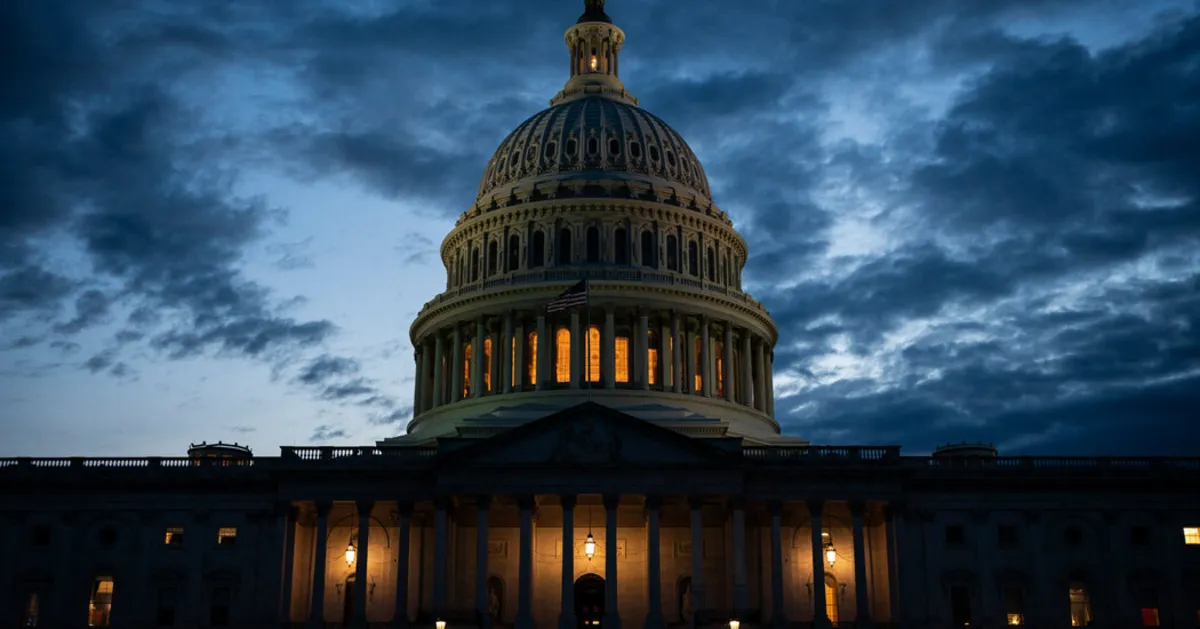
In a recent vote, Senators Rand Paul of Kentucky and Susan Collins of Maine stood alone as the only Republicans opposing a significant budget measure. This budget blueprint is now set to move to the House of Representatives, which must approve it before lawmakers in both chambers can begin drafting legislation that specifies the tax cuts and spending reductions they aim to implement.
“This resolution is the first step toward a final bill to make permanent the tax relief we implemented in 2017 and deliver a transformational investment in our border, national, and energy security,” stated Senator John Thune, the majority leader from South Dakota, prior to the vote. He emphasized the importance of starting the voting process, saying, “Let’s let the voting begin.”
Before Republicans could push through the budget resolution, they faced an arduous process known as a vote-a-rama. This marathon session consisted of rapid-fire votes on various amendments to budget measures. While many of these proposals had little chance of becoming law, Democrats used this opportunity to force votes on politically sensitive issues that could be leveraged against Republicans in future campaign advertisements.
Democrats compelled Republicans to weigh in on amendments that addressed Trump’s escalating global trade war, proposed cuts to Medicaid, and the use of messaging apps like Signal by national security officials during sensitive military discussions. “Our amendments will give Republicans the chance to join us in hitting the kill switch on Donald Trump’s tariffs, on DOGE, on the attacks against Social Security and Medicare and Medicaid,” declared Senator Chuck Schumer of New York, the minority leader, before voting commenced. He challenged Republicans to stand against Trump’s tariffs, questioning, “Will Republicans join us tonight and stand up to Donald Trump before he craters the economy?”
This overnight voting session marked the second for the Senate this year, with most Republicans maintaining unity against the Democrats’ attempts to modify their budget plan. The Senate ultimately rejected a party-line vote on a proposal by Senator Mark Warner, Democrat of Virginia, aimed at prohibiting the use of commercial messaging applications to communicate sensitive military operation details. In another party-line vote, Republicans collectively opposed an amendment from Schumer to rescind Trump’s tariffs if they raised grocery costs for Americans.
Notably, some Republicans, including Collins and Lisa Murkowski of Alaska, sided with Democrats to support amendments aimed at protecting Medicaid and reversing cuts to the Social Security Administration, although these efforts fell short of success.
The budget resolution leaves several key questions unresolved. Earlier this year, House Republicans passed a proposal that would lead to a substantial bill featuring $4.5 trillion in tax cuts and a $2 trillion reduction in federal spending over a decade. Conversely, Senate Republicans opted for a plan that delayed decisions on taxes and spending, proposing instead a $150 billion increase in military spending and an additional $175 billion for border security.
While the new Senate budget outline permits $1.5 trillion in tax cuts, this figure obscures an additional $3.8 trillion for extending the 2017 tax cuts, which Republicans argue should not be recorded as a cost on the federal balance sheet. The true scale of the tax cut envisioned in the Senate outline is approximately $5.3 trillion over the next decade, which is significantly larger than the $4.5 trillion outlined in the House proposal.
With the Senate resolution poised to add approximately $5.7 trillion to the national debt over the next decade, some House Republicans have expressed concerns about the lack of fiscal restraint in the Senate’s plan. Representative Greg Murphy, a Republican from North Carolina, voiced his apprehension, stating, “Let’s be truthful about this; let’s worry about our debt. If we’re not going to worry about our debt, I don’t know how that works.”
The stark differences between the House and Senate budget plans highlight the ongoing struggle within the Republican Party over fiscal policy and priorities.
In a separate context, recent actions by the Trump administration have garnered scrutiny, particularly regarding foreign aid and disaster response efforts. Following a devastating earthquake in Myanmar, the lack of timely aid from the U.S. government has been criticized by lawmakers and humanitarian organizations alike. Reports indicate that three U.S. aid workers were abruptly terminated while on the ground assessing the situation, raising questions about the administration's commitment to international humanitarian efforts.
As the Trump administration faces backlash over its handling of foreign aid, it is also dealing with significant personnel changes within the State Department, leading to concerns about the impact on American foreign policy and disaster response capabilities. Following mass layoffs at the Department of Health and Human Services, legal experts have raised questions about the legality of dismantling agencies created by Congress, suggesting that the administration may have overstepped its authority.
As these political and humanitarian challenges unfold, the implications for both domestic policy and international relations remain uncertain, prompting calls for accountability and clarity from the Trump administration.